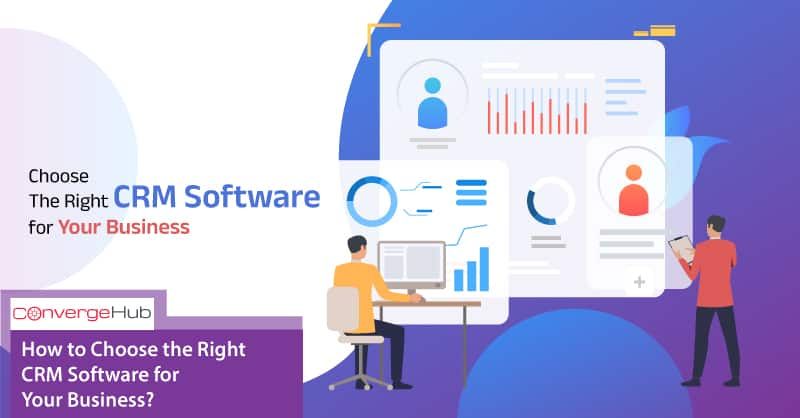Customer Relationship Management (CRM) software is essential for businesses of all sizes to manage customer interactions, track leads, and improve sales and marketing efforts. With so many options available in the market, choosing the right CRM software can be a daunting task. In this article, we will guide you through the process of selecting the CRM software that best fits your business needs.
1. Define Your Business Goals
Before you start evaluating CRM software options, it’s crucial to outline your business goals and objectives. Determine what you want to achieve with CRM software – whether it’s improving customer relationships, increasing sales, or streamlining your marketing efforts. Having clear goals in mind will help you choose the right CRM software that aligns with your business needs.
2. Consider Your Budget
CRM software comes at different price points, ranging from free or affordable options to more expensive enterprise solutions. Consider your budget constraints and look for CRM software that offers the features you need at a price you can afford. Remember to factor in any additional costs such as training, implementation, and ongoing support.
3. Evaluate Features and Functionality
Make a list of the features and functionality you require in a CRM software. Do you need lead management, sales forecasting, marketing automation, or customer support capabilities? Look for CRM software that offers a comprehensive suite of features that meet your specific business requirements. Consider scalability as well – ensure that the CRM software can grow with your business.
4. Integration Capabilities
Integration with other business tools and applications is crucial for seamless data flow and automation. Choose CRM software that offers integration with popular platforms such as email marketing software, e-commerce platforms, and accounting systems. This will enable you to streamline processes and improve efficiency across your organization.
5. User-Friendly Interface
Usability is key when selecting CRM software. Choose a platform with an intuitive and user-friendly interface that is easy to navigate and use. Consider conducting a trial or demo of the CRM software to assess its usability and make sure it aligns with your team’s workflow and processes.
6. Mobile Accessibility
In today’s digital age, mobile accessibility is essential for businesses on the go. Look for CRM software that offers mobile apps or responsive web design, allowing your team to access customer data and manage relationships from anywhere, at any time. This will improve productivity and ensure that your team can stay connected and informed while on the move.
7. Security and Compliance
Security is paramount when choosing CRM software to store sensitive customer data. Ensure that the CRM software you select offers robust security measures such as data encryption, access controls, and regular security updates. Additionally, consider compliance requirements such as GDPR or HIPAA and ensure that the CRM software meets the necessary regulations.
Conclusion
Choosing the right CRM software for your business is a critical decision that can greatly impact your customer relationships and overall business success. By defining your goals, considering your budget, evaluating features and functionality, assessing integration capabilities, prioritizing usability and mobile accessibility, and ensuring security and compliance, you can confidently select the CRM software that best fits your business needs.
NOTE: The above text includes HTML markup for a web page. Make sure to remove the HTML tags before publishing this text on a website.


